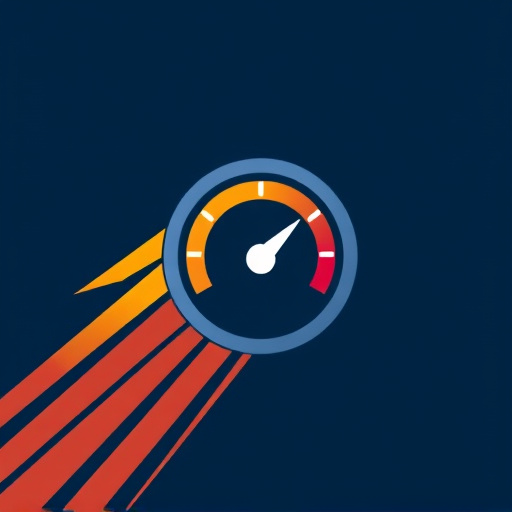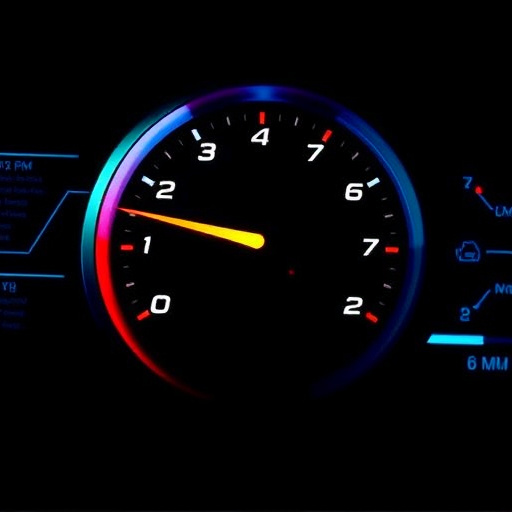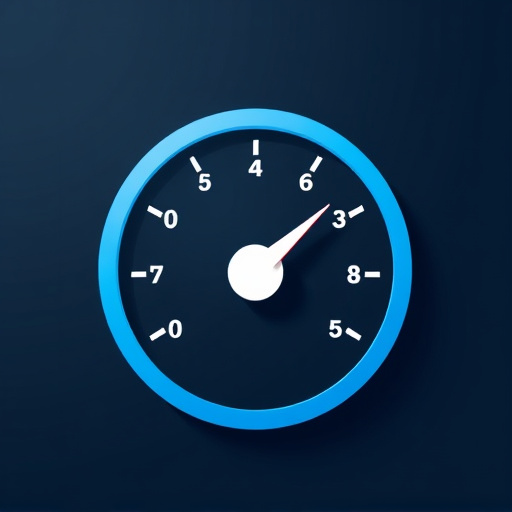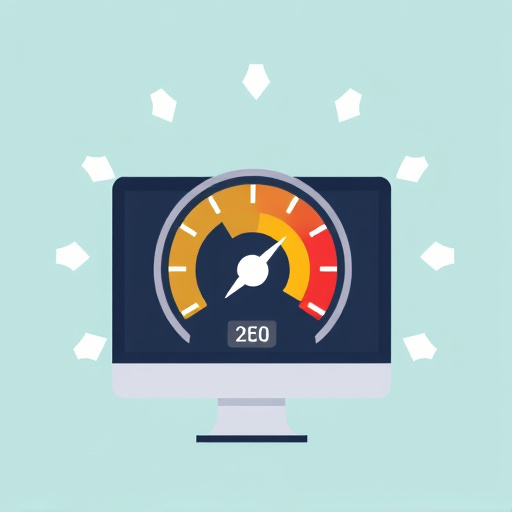Website speed is crucial for SEO, impacting visibility and rankings. Users demand instant access, with search engines prioritizing faster sites. Optimizing for speed through techniques like compression, caching, and efficient code improves user experience, retention, and engagement, boosting rankings. Image and media optimization, browser caching, and cloud hosting are key strategies to enhance website speed, leading to better SEO performance.
Unleash your website’s full potential by unlocking higher rankings through quicker load times. In today’s digital landscape, fast websites are key to capturing and retaining users’ attention. This article guides you through proven strategies to improve website speed for better SEO performance. From identifying slow loading elements to leveraging cloud hosting, learn how these tactics can boost your site’s visibility and drive more traffic.
- Website Speed Impact on SEO Rankings
- Identify Slow Loading Elements
- Optimize Images and Media Content
- Enable Browser Caching for Speedup
- Leverage Cloud Hosting for Quick Loads
Website Speed Impact on SEO Rankings

Website speed plays a pivotal role in shaping your search engine optimization (SEO) rankings. In today’s digital landscape, users expect instant gratification, and fast-loading websites are no exception. Google, for instance, has explicitly stated that page speed is a critical factor in its ranking algorithms, meaning sites with quicker load times are more likely to appear higher in search results. This is because improved website speed not only enhances user experience but also signals to search engines that your site is optimized and reliable.
Optimizing web pages for quicker loading can significantly boost your online visibility. There are several tips for enhancing page speed, such as compressing images, leveraging browser caching, and reducing HTTP requests. By implementing these strategies, you can give us a call at Boost Website Speed for Higher Rankings and witness the positive impact on your site’s SEO performance. How can i improve my website’s page load speed is a common query, and with the right techniques, you can ensure an enhanced user experience while achieving better rankings.
Identify Slow Loading Elements

Identifying slow loading elements is a crucial step in unlocking higher rankings and enhancing your website’s overall performance. Start by using Google PageSpeed Insights or similar tools to analyze your site’s current speed. These tools will break down performance metrics, identifying specific areas of improvement like large image files, third-party scripts, or inefficient code. By pinpointing these bottlenecks, you can focus your efforts on optimization strategies that directly impact user experience.
Remember, a seamless user experience through faster website speeds is not just about improving rankings; it’s also about retaining visitors and encouraging them to explore more of your site. Following SEO tips for faster website loading, such as compressing images, leveraging browser caching, and minimizing HTTP requests, can significantly contribute to your website speed SEO: a comprehensive guide. So, take action now, find us at enhance online visibility with faster website loads, and watch your site’s performance soar!
Optimize Images and Media Content

Optimizing images and media content is one of the top methods to improve web page speed, as these elements significantly impact your website’s overall loading time. Large, uncompressed images can slow down your site considerably. Compressing and resizing images while preserving quality ensures they load quickly without sacrificing visual appeal. Modern image formats like WebP and JPEG 2000 offer better compression than traditional JPEG or PNG, resulting in faster load times. Additionally, using lazy loading techniques for images that appear below the fold can further enhance website speed.
Implementing effective media content optimization involves more than just images. Videos and other multimedia should be optimized for web delivery, utilizing appropriate codecs and bitrates to strike a balance between quality and size. Hosting these files on dedicated video platforms or content delivery networks (CDNs) can also improve load times by distributing the content across multiple servers, giving users faster access to your media-rich web pages. Remember that quick website loads are crucial for not just enhancing user experience but also improving SEO performance, so give us a call at improve page load times for enhanced user experience and explore these tips for optimizing web pages for quicker loading.
Enable Browser Caching for Speedup

One effective strategy to improve website speed for better SEO performance is by enabling browser caching. This simple technique allows your web pages to be stored temporarily in a user’s browser, eliminating the need to download them from the server with every visit. As a result, it significantly reduces page load times, providing a seamless browsing experience that enhances user satisfaction and encourages repeat visits.
By implementing browser caching, you’re not only improving page load times for enhanced user experience, but also sending positive signals to search engines like Google. These engines prioritize websites that offer quick loading speeds and responsive designs in their rankings, making it a crucial website speed SEO strategy for driving higher traffic and better conversion rates. Visit us at improve website loading speed for higher traffic anytime to explore more ways to optimize your online presence.
Leverage Cloud Hosting for Quick Loads

Cloud hosting is an effective strategy to achieve lightning-fast website loads and subsequently improve your site’s SEO performance. By leveraging cloud technology, websites can distribute their content across multiple servers, ensuring efficient data delivery. This approach significantly reduces page load times, as users gain access to content from the nearest server, resulting in a smoother browsing experience.
One of the key benefits of cloud hosting is its scalability. As your website traffic increases, cloud services can dynamically allocate resources to handle the demand. This ensures that even during peak hours, your website remains responsive and fast. Unlike traditional hosting, which might struggle with sudden spikes in traffic, cloud hosting provides flexible solutions for enhanced user engagement. Contact us at Website Optimization Techniques for Quick Loading to learn more about these efficient website speed solutions.
By implementing these strategies, from optimizing media content to leveraging cloud hosting, you can significantly improve your website’s speed and unlock higher rankings in search engine results. Quick loading times not only enhance user experience but also serve as a crucial factor in SEO success, ensuring your site stands out in a competitive online landscape.
